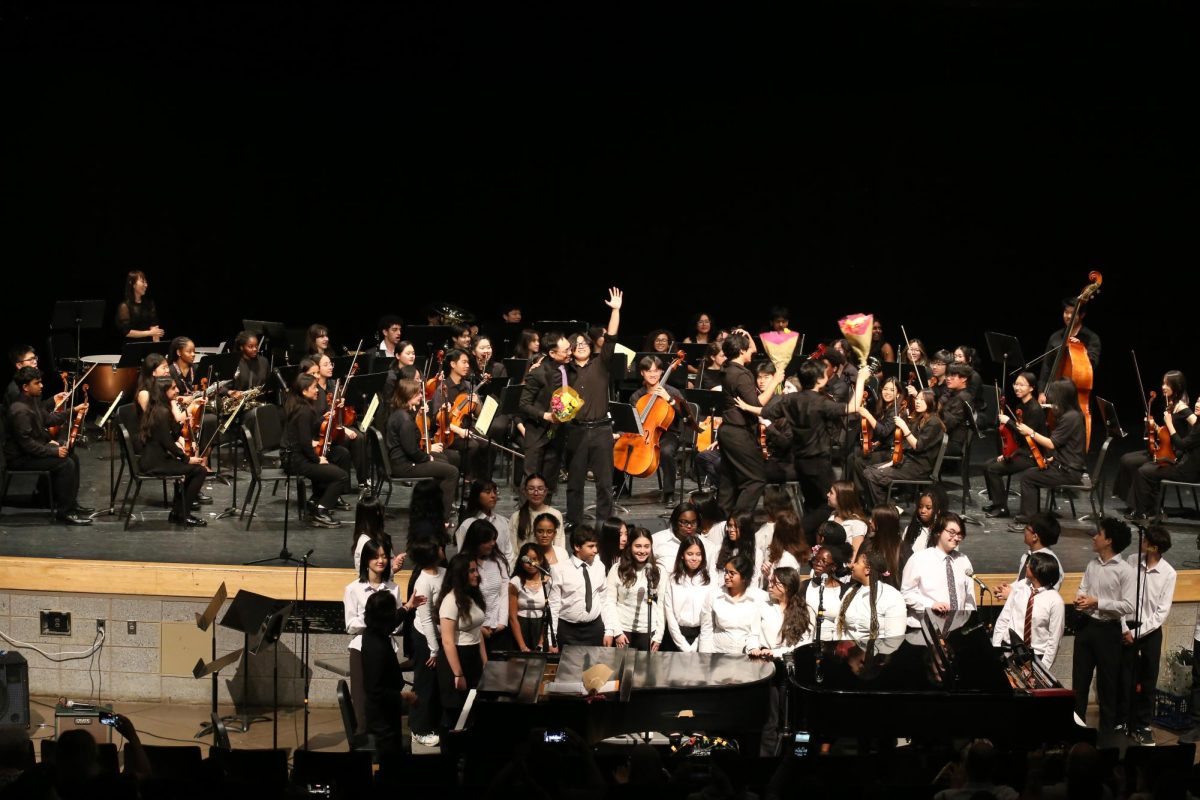
By Kristiana Deur and Francesca Filiberti, A&E Editors
Almost every child aspires to become an actor, singer, dancer or artist, but as they grow older their dreams become just that, dreams. Instead, ideas of a more “viable” career implement themselves into the minds of teenagers and young adults from outside pressures. Their future choices are no longer being determined by desires but are hampered by practicality and the constantly looming worry over money.
Students at Townsend Harris High School are continuously striving for success while experiencing the stresses of excelling in their current school work and planning for their future careers. Although the school itself is mainly known for its high achievements in its humanities, math and science programs, the art department is full of talented individuals looking to pursue a career dedicated to their interests.
However, modern society has created a stigma in which choosing a career in the arts is deemed frivolous. Many students and teachers disagree with this statement feeling that the passion in the topic outweighs the idea of practicality.
Class of 2010 alumna Reisha Cadelina, pursuing music, expresses her thoughts on the stereotype saying, “It sends the message that anyone with artistic talent is not going to succeed. Everyone has different skills, and no one should tell you that your ability to create something beautiful is not important.”
Art teacher Margherita Wischerth explains that “The perception of a person interested in pursuing the study of art does not seem to be granted the same level of acceptance within the public school arena, but those who pursue their interests can find satisfaction as well as recognition of being an asset within their chosen profession.”
This level of acceptance is not only undermined in a public school setting, especially one mainly focused on academics, but also between fellow performers. Many students have expressed the fear that their level of talent will not reach the standards of what is required in order to excel in their field.
Junior Daniella Babayev shares, “I would love to sing or act on a stage everyday but I don’t have nearly the same amount of training as some other talented people.” She continues by stating, “I like things to be constant, so having a practical job and a set schedule every day just seems more realistic to me and my family.”
However, others, such as class of 2014 graduate Chris Chan believes that “When it comes to being paid, I’m starting to see that it’s no longer a competition between artists to see who is better. It’s more of an artist’s competition …to see if they can find the art within themselves and showcase to the right set of people in life.”
The fear of not being able to find success in a career in the arts further develops into the anxiety of not being able to reach the goals set by the individual and their family. Pursuing an arts related occupation is oftentimes looked at with much trepidation, increasing the pressure on the individual to prove that their choice was the right one.
Senior Noel Du states, “While making art is something I enjoy, there is that fear of creativity running out, and also having to ‘make art on demand.’ Comics and collages are things I do for fun on my own accord and in my own interest. I can’t be forced to come up with content on the spot. You need income to get by in this capitalist world, but you also need interest to keep going.”
Sophomore Abby Dutes agrees “art is personal, and you more or less create to reflect or release parts of yourself to the world; whether or not people accept and support you is out of your control.”
Alumna of the class of 2009, Fior Fabian, elaborates: “It is hard to get into [art programs], but the same can be said for those who fight to go into the top law and medical schools. The MFA program at UCLA has a 3% acceptance rate – that’s equal to the acceptance rate for Harvard Law. No matter what industry you go into, you need to be one of the best to have a successful career.”
Freshman Osiris Guerrero continues this idea saying, “I don’t really want to pursue a career in the arts because I would have to dedicate all my time into it to be extraordinarily good at it to actually be able to make a living out of it. I would be forced to do it to survive rather than wanting to do it out of my own will. I feel like because I would be forced to do it, I would eventually hate it.”
However sometimes the passion and love behind a certain creation is all that is needed for an artist to pursue his or her dreams.
Senior William Mun shares “I feel like everyone dreams of fame and success; however, I want to just be making a satisfying living while doing what I love.” William continues by saying there are many different artistic fields he would want to study, they don’t necessarily have to be his main focus, but will definitely remain a part in his life. “ Regardless of what people think, I just want to make sure I’ll be happy, even if this means I can’t necessarily have a job in the arts.”
Alumna of the Class of 2016, Tasnim Abdelkarim, currently studying architecture, shares a similar viewpoint to that of William saying “A painting can move armies with a powerful message or make us think about something. Arts are everywhere and in everything.” She herself understands the looming thoughts of dollar signs when choosing a career but feels that “You can be successful and still make money studying art.”
Ms. Wischerth agrees with Tasnim explaining “There are many aspects where an arts education can provide a career besides the educational field such as advertising, film industry, graphic design and museum curator.”
Many agree that the interest in the field outweighs the supposed practicality that it’s reputation holds. Both Ms. Wischerth and William explain that through time and effort, the total income does steadily increase, however, without a true passion to excel in the topic, no matter the career, it will be much harder to succeed.
Although outside pressures may say otherwise, the overwhelming feeling is that being interested in the topic one will pursue is more important than determining one’s future based on how lucrative the career will prove to be.
Noel concludes saying “If that’s your honest passion, and you’re willing to work [hard], then go for it. Practice and get better. Make connections and take internships. See the world and know your stuff.”



























Keith Tully • Nov 29, 2017 at 11:58 am
I am a realist, and only a very small number of people will have the talent, drive, and opportunities to get to the professional level within the arts to sustain a reasonable monetary lifestyle in the arts. However, I concur that to downplay the passion of someone who could make it in a profession in the arts is terrible. Schools should have ways of identifying real candidates, and ways to send students to auditions to test their abilities. This could funnel the ones who pass these auditions to places of opportunity for scholarships and, eventually, work. Schools like The Theater Street School in Richmond Hill (a small non-profit charter school), for example, is a great place for high school students to do volunteer work as it is a great place to start elementary school children in the arts (Ballet and Performance Arts, in this case). I am sure there are others out there as well throughout the city. I think building the “who you know: has to be emphasized in this industry as well. A business acumen couldn’t hurt for artists looking to make a career out of their talents as well. Even if they don’t make it to their “big league” assignments (as we know everyone may not), they can always teach or find another niche where their talents could be a career they create for themselves.